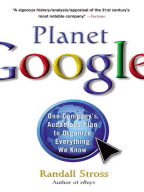Travis Kalanick, the chief executive officer of Uber Technologies Inc., says he needs leadership help. He recently dispatched former U.S. Attorney General Eric Holder to investigate sexual harassment claims against the company. His security team is reviewing a practice known as “Greyballing.” And he’s no longer going to any more meetings with President Trump.
These damage-control initiatives—in response, respectively, to a leaked video in which Kalanick was rude to an Uber driver, a blog post by a former engineer, an admission that the company had been deliberately misleading police, and a customer boycott—were the result of a month’s worth of public-relations disasters. Taken alone, any of these would have been enough to slow down the famously fast-moving ride-hailing company. Taken together, they’ve caused some to question Uber’s viability and Kalanick’s staying power.
But none of these scandals has the potential financial impact of the one Uber has said the least about: a lawsuit from Alphabet Inc.—the parent of Google and Google’s self-driving car division, now called Waymo—over driverless cars. Waymo says Uber is in possession of, and is basing the future of its business on, technology that was stolen by a former employee.
Self-driving technology has become a fixation for Kalanick. Developing a driverless car, he’s often said, is “existential” to Uber. If a competitor managed to get there first, it could easily replicate Uber’s core service (shuttling passengers) without its single largest cost (paying drivers). Over the course of a few weeks in 2015, Kalanick poached 40 researchers from the Carnegie Mellon University robotics lab, one of the country’s top autonomous vehicle research centers. Then, last summer, Uber became the first company to operate a fleet of autonomous taxis, in downtown Pittsburgh. On the day it announced that service, Uber also said it had acquired Otto, a self-driving truck startup founded in January 2016 by a former Google employee, Anthony Levandowski. The 37-year-old engineer was an original member of Google’s car team and a protégé of its creator, Sebastian Thrun.
At Google, Levandowski had been both a brilliant engineer and a divisive manager, with a reputation for flouting corporate norms and skirting rules to get cars on the road as quickly as possible. He was so controversial, according to several former and current employees, that when he was being considered





























